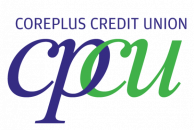Don’t be fooled by the latest fraud and scam tactics.
Fraud Alerts for Credit Union Members
Fraud prevention is important for everyone, regardless of age or financial situation. By taking some simple steps, you can protect yourself from becoming a victim of fraud.

Current Fraud Alerts
Phishing Attempts
Recommended Resource | www.mycreditunion.gov
What is a “phishing” scheme? Phishing is when you receive an email that appears to be from a legitimate company asking you to confirm your identity in some way. You click on a link, provide your personal or financial information, and the end user (or their) uses that information for various purposes.
In many cases, identity thieves will present themselves as credit union representatives and contact consumers either by text message or phone call, not by email. Consumers are led to believe their account information has been compromised and they are instructed to either click a link or provide personal information to authenticate their accounts which can put you at risk. Consumers should avoid providing any personal information when not initiating the call or text message
Please note that CPCU will never request personal information via text message or email.
Tech Support Scams
Recommended Resource | www.support.microsoft.com
As many working individuals were forced to convert to remote working, fraudsters were working on increasing their online presence. Typically this scam starts with a popup or an ad on your computer, disguised as an alert from Microsoft or a virus protection program. The notification will tell you that your computer has been compromised and to immediately call the number on your screen for protection. This number is NOT legitimate. The person on the other end of that call is a scammer, who will tell you that your computer has been infected or that they can “see hackers” who have stolen your banking information. A “hacking” attempt is extremely unlikely. There is not much to gain from a hacker attempting to obtain access to an individual’s computer. These scams are very convenient for scammer organizations, because their victim calls them first. Scammer organizations are intelligent, they know exactly what to say to make us worry and willing to comply with their requests under the guise of protecting us. The real threat is what follows next: the scammer will request that you click on a link or otherwise allow them remote access to your computer or device so that they may block the threat from stealing all of your money. They will ask you to verify card numbers or to log into your online banking using the same computer that you are screen sharing with them. This compromises not only the card information you share, but also provides them your bank information and account details. They will have the ability to take over your mouse and transfer funds between or out of your accounts, leaving you defenseless. Remember, these popups are harmless and pose no threat to you unless you respond. If you delete it or ignore it, it will go away. If you are worried about viruses or malware, be sure to regularly run virus protection software that you purchase independently.
Amazon Scams
Fraudsters attempt to collect information and credentials from individuals by phone or by email. Amazon typically conducts business through email, and will often email their customers with updates to their account and with notifications regarding purchases. It can be difficult to differentiate between what is real and what is phishing. Phishing emails from fraudsters posing as “Amazon” will tell you that a purchase was made on your account. The purchase is likely a high dollar amount, and the email will list a phone number to call if you want to dispute the charge. Of course your first instinct is to call the number – you didn’t make that purchase! However, the number will lead you to a scammer, not Amazon’s customer service. By going directly to Amazon’s website (don’t click any links in the email!) and logging into your Amazon account, you will be able to see all the orders you have ever made. You will also find Amazon’s contact information to call customer service. By doing this, you have bypassed the scammers attempts to collect your information and have confirmed it was a phishing attempt. If you delete or ignore the email, it will pose no harm!

